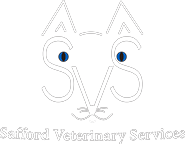Puppyproofing Tips

September is Responsible Dog Ownership Month. Adopting a puppy is a huge responsibility. You’re making a lifelong commitment, and promising to take good care of little Fido until the end of his days. That starts with providing a safe environment. A local Yorkville, IL vet offers some advice on puppyproofing in this article.
Toxic Plants
Plants are one of the biggest potential hazards. While some may only give little Fido an upset tummy, others can be deadly if ingested. Even non-toxic plants, such as roses, can cause injuries because of the thorns. Check the ASPCA site here for a full list.
Small/Sharp Objects
Anything small or sharp should be kept well away from those cute little paws. That includes things like craft kit pieces, buttons, beads, coins, nails, crayons … the list goes on.
Wires And Cords
Anything stringy or ropy has the potential to cause serious internal damage if ingested. That includes things like rubber bands, hair ties, string, wires and cords, and fishing line.
Personal Items
Fido has definitely chewed up his share of shoes and purses. Store personal objects in closets or in high spots that your furry pal can’t get to.
Household Products
Did you know that the average household may contain as many as 400 different chemicals? The list of products that are dangerous to dogs includes automotive products, cleaning products, detergents, drain openers, paint, turpentine, and de-icing products, to name a few. Keep these in secure cabinets.
Lawn And Garden
Fertilizer, pesticides, and rodenticides are just as dangerous to dogs as they are to unwanted invaders. Slug bait is one that is particularly dangerous. Little Fido can ingest these chemicals just by walking through spots that have been treated, and then licking his paws.
Medicines
Human medicines are a major cause of pet poison incidents. Keep all drugs—both OTC and prescribed—out of paws’ reach!
Gates and Fences
Do you have a yard for your furry friend? Check for toxic plants, and remove any potential hazards, such as pieces of litter or small toys.
Other Hazards
Do you have a pool or fireplace? Block them—and any other dangerous areas—off with gates or grates. (Tip: baby gates work well for this.)
Tips
Puppyproofing should go hand in hand—or hand in paw—with proper training. Offer little Fido lots of chew toys, and reward him for using those, rather than your shoes.
Our Advice on Puppyproofing Tips in 2024
What are the potential dangers of toxic plants to puppies, and how can they be identified?
Toxic plants can pose severe dangers to puppies. Ingesting certain plants can lead to symptoms ranging from gastrointestinal upset to organ failure or even death. Identifying these plants is crucial for puppy safety. Some common toxic plants include lilies, azaleas, oleanders, and philodendrons. Symptoms of plant toxicity in puppies may include vomiting, diarrhea, drooling, and lethargy. For your puppy’s safety, it’s crucial to thoroughly research and identify any potentially toxic plants in both your indoor and outdoor environments. Take proactive steps to remove these plants or place them in locations inaccessible to your puppy. Consulting with your veterinarian for a comprehensive list of poisonous plants is also advisable.
What small or sharp objects should be kept from puppies to ensure their safety?
To ensure a puppy’s safety, keeping small or sharp objects out of their reach is crucial. Everyday items to safeguard against include small craft kit pieces, buttons, beads, coins, nails, crayons, and other objects that could easily be swallowed or cause injury. Puppies, especially when teething or exploring, are naturally curious and may try to chew on or ingest such items, which can lead to choking or internal injuries. Puppy-proofing your home by removing these hazards from their access areas is essential for their well-being. Additionally, providing appropriate chew toys can help redirect their chewing behavior onto safe objects.
Which household products are dangerous to puppies, and how should they be stored safely?
Several household products pose dangers to puppies and should be stored safely to prevent accidental ingestion or exposure. These include automotive products, cleaning products, detergents, drain openers, paint, turpentine, and de-icing products. To protect your puppy, store these items in secure cabinets or areas that are inaccessible to your pet. Ensure containers are tightly closed, and consider using childproof locks on cabinets if necessary. Additionally, always follow label instructions when using these products to minimize the risk of contamination or spills that could harm your puppy.
What measures should be taken to ensure the safety of puppies in yards with gates and fences?
Ensuring the safety of puppies in yards with gates and fences involves several vital measures. First, inspect the yard for toxic plants and remove hazards like litter or small toys. Install secure gates or grates to block access to dangerous areas such as pools or fireplaces. Baby gates can be effective for this purpose. Regularly check the condition of gates and fences to ensure they are in good repair and can’t be easily breached by a curious puppy. Supervise your puppy while they are in the yard, especially in the early stages of training, to prevent accidents or escapes.
How can hazards like pools and fireplaces be blocked off to protect puppies, and what barriers are practical?
Practical barriers are essential to protect puppies from hazards like pools and fireplaces. For pools, a sturdy fence with a self-closing gate is a must. Ensure the wall is tall enough and lacks footholds for climbing. Pool covers or alarms can provide extra safety layers. Fireplaces can be blocked off using fireplace screens or gates designed to keep puppies at a safe distance. These barriers should be securely in place and not easily knocked over. Supervision is critical, but these physical barriers add an extra layer of protection, keeping curious puppies safe from potential dangers.
Do you have questions about puppy care? Please reach out to us, your Yorkville, IL animal clinic, anytime!
